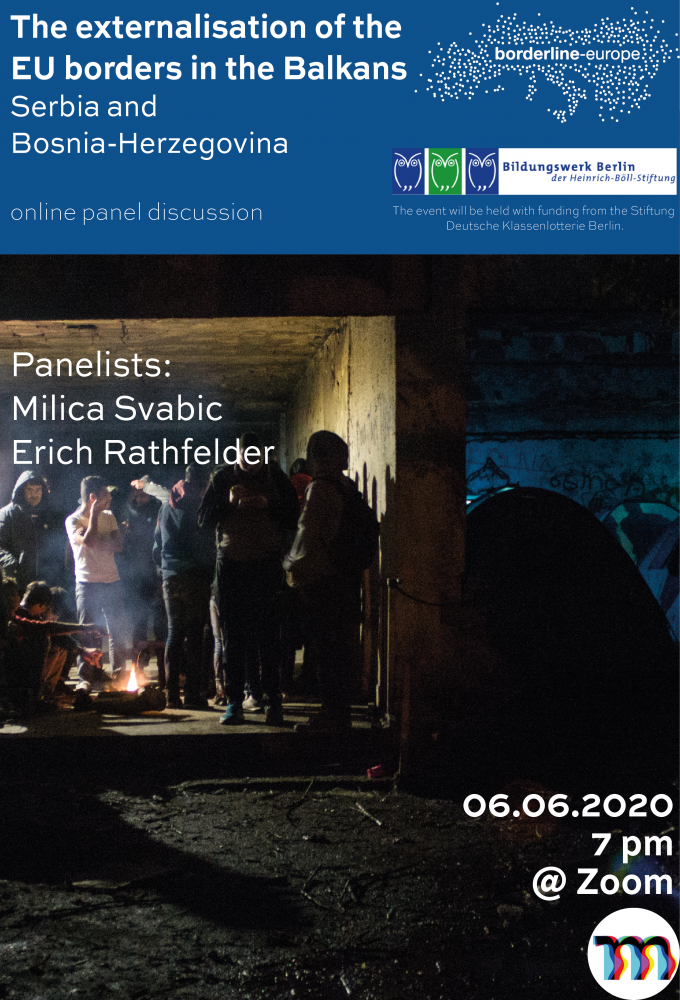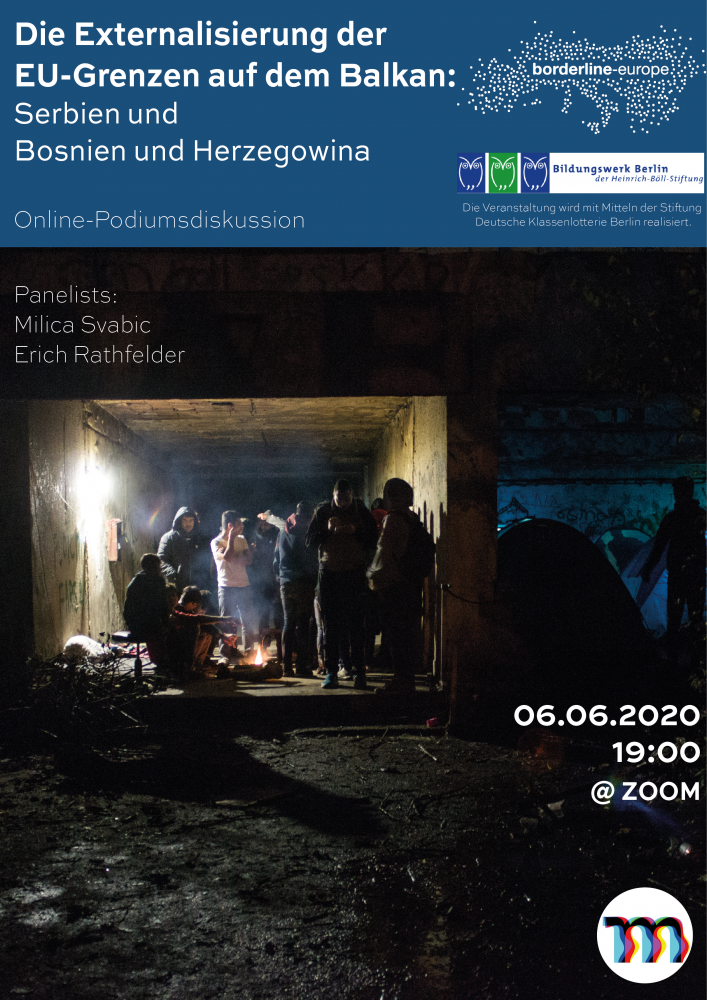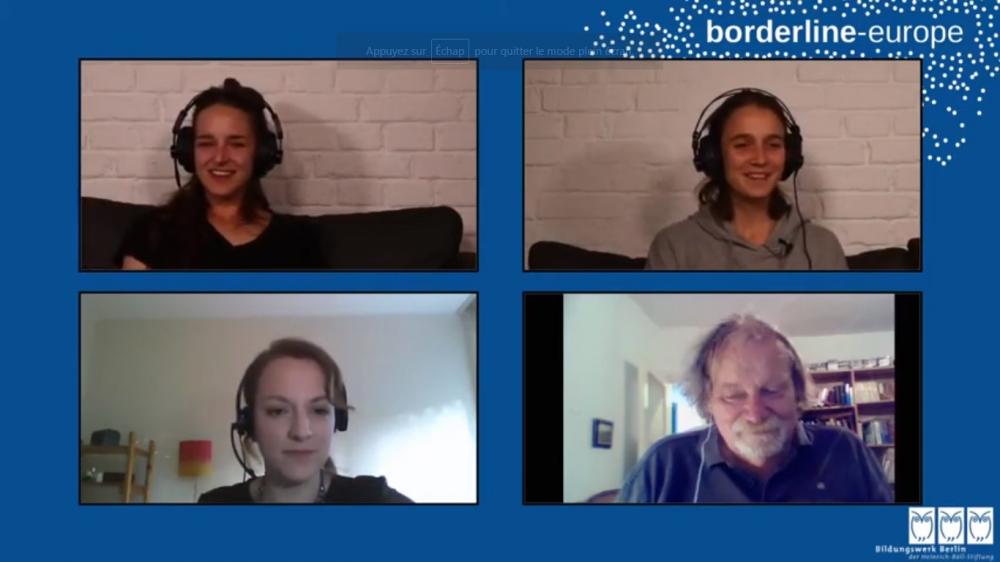Die Externalisierung der EU-Grenzen auf dem Balkan: Serbien und Bosnien und Herzegowina
For a long time, the Balkan countries have been a transit area for many people on the move moving towards Central and Eastern Europe to reach the European Union (EU). The European externalization policies expand the EU’s control and influence beyond its borders, to prevent the people on the move to reach its territory. These deadly externalization policies of the Fortress Europe lead to inhumane conditions for the migrants and refugees. A lot of alarming situations are the daily reality of the people on the move in Serbia and Bosnia-Herzegovina (BiH), where human rights and human dignity are scorned every day.
On the one hand, the EU enlargement process requires aspiring member states such as Serbia and BiH to harmonize their legislations and policies, while on the other hand the EU member states tolerate the excessive violence of border officials against people on the move. NGOs have documented countless cases of "torture-like police tactics", dog bites, threats of shooting, and all conceivable forms of violence. Today, thousands are stuck in transit in dire conditions in Serbia and BiH, facing ill-treatment by police, and lack of adequate protection and access to asylum. Forgotten by the governments, it is time to put the light on those unacceptable conditions.
Since the spread of Coronavirus in the region, the situation has significantly worsened for people on the move, who now face confinement in overcrowded facilities, and lack of medical services. Adding to that, NGOs and individuals have almost no possibilities of providing assistance amidst the current restrictions. For instance, a lock-down was put in place in Serbia from the 15th of March, preventing the people to leave the camps. The army came to monitor the migrants and refugees, using intimidation and force. In such situations, where some hygienic rules and social distancing were required, numbers of 9 000 people were crowded in the camps having a limit capacity of 3 000.
The online panel discussion on June 6th 2020 focused on the situation of people on the move in BiH and Serbia, the political conditions on the ground, and the consequences of the EU's externalization policies there. It allowed a better and broader understanding of the situation in the countries on the so-called Balkan route, for both the people on the move and the population of Serbia and BiH, as well as the difficulties people face. Together with the penalists, the political agenda of modern migration and border management was discussed, to better understand the complex relationship between Serbia, Bosnia, and the EU in regard to the European externalization migration policies.
Penalists:
Milica Svabic is a lawyer and activist from NGO Klikaktiv - Center for Development of Social Policies registered in Belgrade, Serbia. For more than five years she has been providing legal advising and legal representation to refugees with some milestone cases. She is familiar with the daily struggles of refugees across the Balkan route both in the official asylum systems and informal refugee squats, as well as with the problems faced by people on the move, such as violence and push-backs and the EU's external borders.
Ericht Rathfelder worked from 1983 as a West and East European editor for the taz. Since the declaration of independence of the democratically elected parliaments of Slovenia and Croatia in 1991, Rathfelder has been reporting as a war reporter from the former Yugoslavia. In June 1998, Rathfelder was declared an undesirable person by the Serbian government and expelled from Serbia. Only after the NATO war was the entry ban lifted again. Since then he lives as a correspondent, publicist and filmmaker in Sarajevo and Split.
Quotes:
"There is this narrative that Serbia is a transit country. Serbia is neither providing a functioning asylum system nor protection."
- Milica Svabic
"It is striking how silent the media was. The conditions in the "camp" in Vucjak were disastrous. Finally in autumn last year the camp in Vucjak was dismantled but without offering any alternative to the people."
Erich Rathfelder speaks about the conditions for people on the move in Bosnia-Herzegovina.
"Some people estimate that Serbia will be the first country joining Dublin before even joining the European Union. Estimations are this may happen in the next 2 years."
- Milica Svabic
If you've missed it, you can watch it here: https://www.youtube.com/watch?v=35DljD2duv0.
Follow these links for more information:
-
Klikaktiv: https://klikaktiv.org/
- Eksternalizacja - eine Online-Fotoausstellung: https://www.borderline-europe.de/unsere-arbeit/eksternalizacja-eine-online-fotoausstellung
- Push-backs und Polizeigewalt gegen Flüchtende in Serbien und Bosnien: https://www.borderline-europe.de/sites/default/files/readingtips/Push-backs%20und%20Polizeigewalt%20gegen%20Fl%C3%BCchtende%20in%20Serbien%20und%20Bosnien_2020.pdf
-
Menschenrechtsverletzungen an den Grenzen Kroatiens müssen umgehend gestoppt werden: https://www.borderline-europe.de/sites/default/files/readingtips/Human%20Rights%20violations%20at%20Croatia%27s%20borders%20must%20cease%20immediately%20%281%29_0.pdf
-
A Klikaktiv's report about the situation of the people on the move in Serbia (end of 2019): https://static1.squarespace.com/static/5e3766f903c72c513a16796c/t/5e89d1187de63058bf34fd98/1586090268016/Klikaktiv+-+On+the+situation+of+refugees+in+Serbia3730471276557711977.pdf





